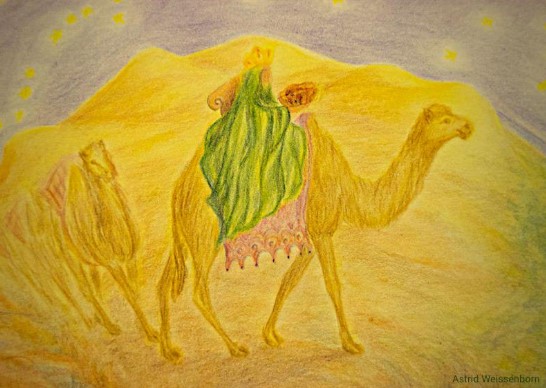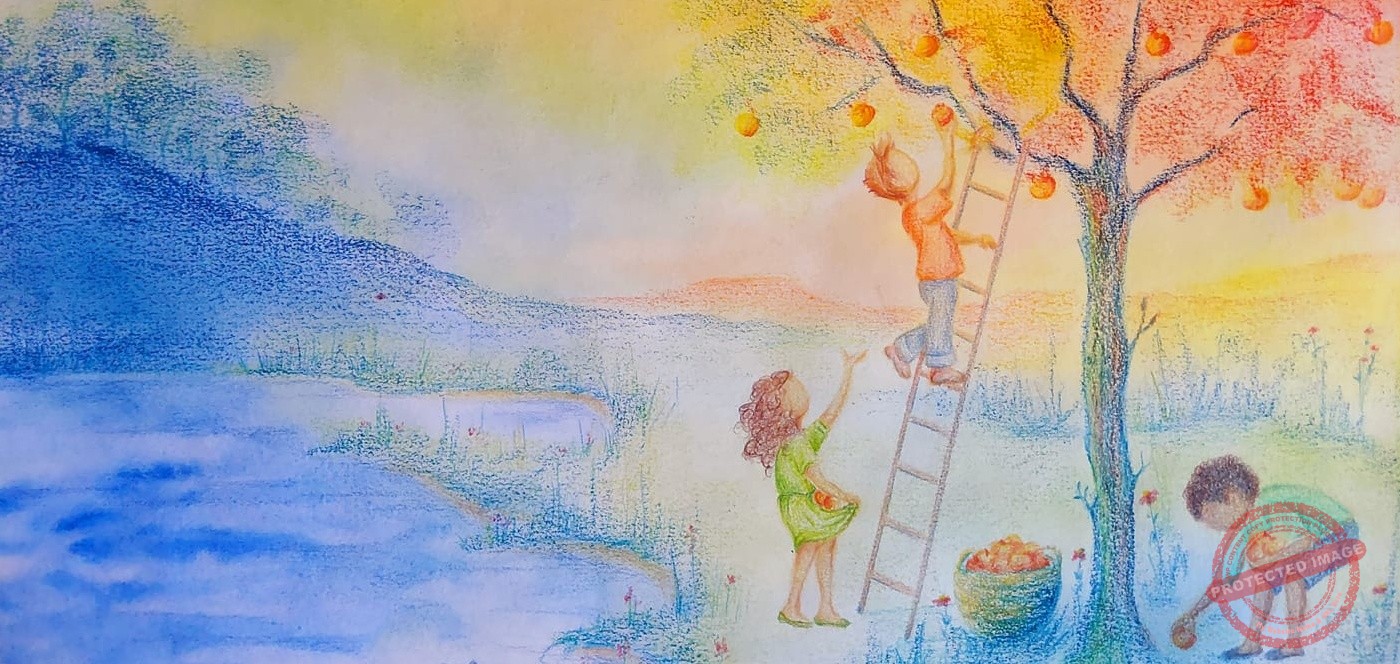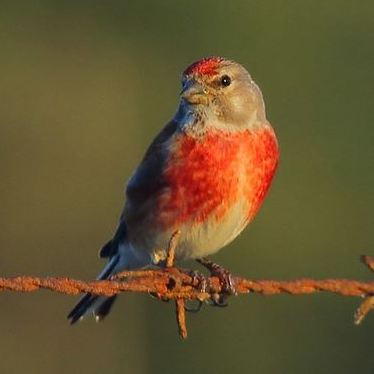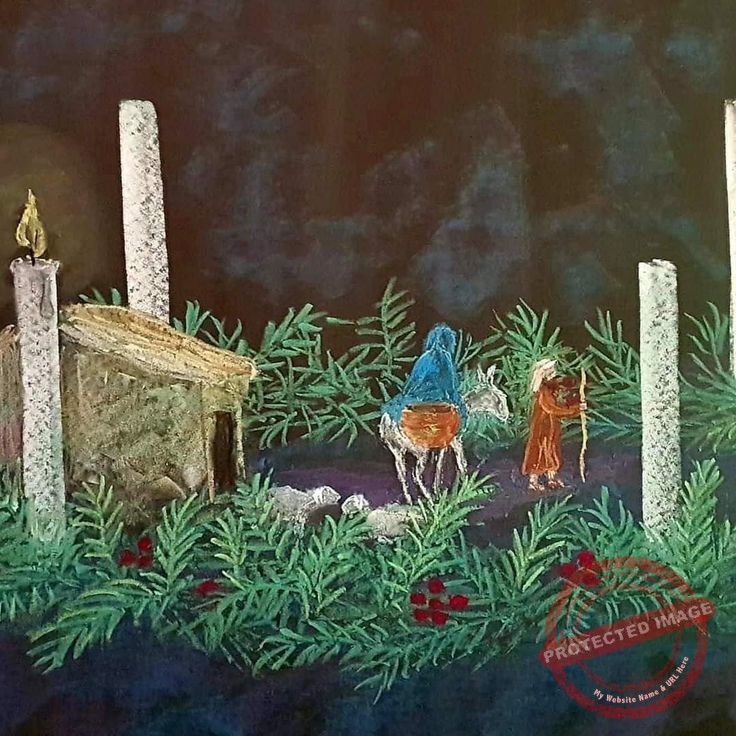[print-me target="body"]
7 short stories by Georg Dreissig
1. WHY APPLES ARE RED
In the Garden of Paradise, there was a tree that belonged only to God. In it grew the most beautiful red apples that we can imagine. If a little animal passed by or if a bird flew overhead, they always looked ecstatically at that wonderful tree with red apples. Even Adam and Eve, who lived in the Garden of Paradise, were often amazed at that tree, whose fruits belonged only to God. One day, however, Eve was seduced by the serpent, took the apple, tasted it and also gave it to Adam to eat. Then, suddenly, the beauty of the tree was liquidated. And when Adam and Eve were expelled from Paradise, Paradise also lost its most beautiful tree. The apple tree was so scared that its apples were completely colorless and hard. If anyone were to taste them, they would not find them sweeter and more succulent, but rather bitter.
However, the apple tree was supposed to regain its beauty, but not until many hundreds of years later. There was a remnant of the tree of Paradise in the garden of Mary and Joseph in Nazareth. It had grown stunted and annually bore small, hard, bitter apples. Nobody wanted to eat them, not even the donkey. But when the angel came to Mary's house to announce that she would be the Mother of the Son of God, he also went to the apple tree in the garden and whispered a message to her: "Get ready, apple tree, for your time of want is over. On Christmas night a Child will be born, and he will be the very Son of God. Remember that you are the tree that bears the fruit of God.”
This happened in the spring. What was the surprise of Maria and José when they realized, in the following weeks, that that little tree began to stretch and then bloomed beautifully. Soon there was a buzzing and buzzing in the branches, for bees came to nibble on the flowers.
Quando, no outono, amadureceram as frutas, elas não eram pequenas e duras como antes, mas sim redondas, grandes e vermelhas. Vocês bem podem imaginar porquê. É que elas estavam felizes por serem novamente as frutas de Deus, que ia mandar seu Filho à Terra. Chegando a época da colheita, Maria juntou as maçãs numa cesta e disse a José: “Vamos guardá-las para nosso Filhinho.” Por isso, quando tiveram de viajar para Belém, o burrinho carregava nas costas um saco de maçãs vermelhas, que eles não comeram nem nas horas de muita fome.
Assim acabou a maldição da macieira. Dali por diante, ela pôde novamente dar seus frutos aos homens; mas todo ano algumas ficam reservadas para o Menino Jesus: as mais vermelhinhas. Elas nos lembram como a macieira se alegra com a vinda do Filho de Deus à Terra, e por isso devem ser guardadas para enfeitar nossa mesa de Natal.
2. THE SILVER THISTLE
When God the Lord made the plants, he asked each one how it would like to be. One would like to be big and powerful, the other would like to have a lovely scent, one would like to have red flowers, another would like them blue, and one would like them white. All your desires God the Lord gladly fulfilled. So He asked a little plant: “So, dear creature, what is your innermost desire? Do you want to be big or small, have yellow, red or blue flowers?” The little plant replied, “It's all right with me. I will gladly be stuck to the ground and I will also have thorns, but if you can satisfy my only wish, it is that my flowers will remain until the birth of Baby Jesus.” There, God, the Lord, smiled kindly and gave the little plant its shape. It grows very discreetly close to the ground, and its leaves are covered in thorns. The flower, however, shines like a beautiful silver star and, even though it blooms and is picked in the summer, it continues to live until Christmas time comes, to make the Baby Jesus happy.
3. IN THE FOREST OF THORNS
On their way to Bethlehem, Mary and Joseph had to cross a forest. Dry and woody the arid trunks rose, and among them grew bushes, hard and gnarled, bearing sharp thorns instead of leaves. These hit travelers, tearing their clothes. And the little donkey, then, who could not turn aside like men, got the worst of it; the thorns continually got into his poor fur, until at last he didn't want to walk anymore. It was no use asking or scolding. The donkey stalled and shouted a pitiful “Hin-hon” every time José, with his staff, tried to force him to walk. There Joseph scolded the thorny bushes, which made their journey so difficult. But Mary, the dear Divine Mother, gently laid her hand on her husband's shoulder and said: “Dear Joseph, don't complain so much about the thorn bushes. They cannot produce anything other than thorns, as the climate is very dry in this region. If they had more water – I give you my word – they would give fragrant roses for us and our dear son.” Then she raised her eyes to heaven and asked: “My dear God, let your goodness descend like life-giving dew, so that these poor thorn bushes can transform as they wish.”
As soon as Mary said this prayer, a gentle dew fell from heaven on the thorny bushes. These soaked up the water with joy, and as they did so, all their thorns fell off. In their place, however, wonderful roses bloomed; they shone in the most beautiful colors and seemed to bet, one with the other, which one would give the most pleasant scent. Mary and Joseph gave thanks for the miracle. The little donkey, in turn, became very happy again and stuck out his nose at the fragrant air, trotting with pleasure in front, towards Belém.
4. THE MODEST TUBERCLES
A merchant traveled to distant lands and, on his return, brought with him many wonderful gifts: fabrics and utensils, jewelry and spices. For each person in his family, he brought a special gift. To his wife, however, he gave a small bag that looked very simple, but which contained the most expensive items he had acquired. “Take care of it,” said the merchant to his wife, “for I have heard that this little bag has the gift of prophecy. He will announce to us when the King of the World will come to us.” The woman marveled at that; he put his ear to the rough fabric of the bag, but heard no sound. From time to time he took the bag, looked at it closely, but couldn't find anything unusual about it. When at last her husband left on his journey again, she took the bag, crept into the forest and, making sure that no one could see her, opened it and looked inside. And what did she see? Some common tubers, small and not very showy. “Is this your whole secret?” - exclaimed the disappointed woman.
And he scattered the tubers along the way, as he returned home. The modest tubers were left on the forest path, exposed to weather and wind, until the earth and dust slowly covered them.
Later, on their way to Bethlehem, Mary and Joseph passed through that forest. It was then that it was seen that the merchant had told the truth: Under the feet of the dear Divine Mother, the tubers sprang up, and from them grew small silvery-white flowers, which shone as if the path were strewn with stars. They also announce today the coming of the King of the World. That's why Christmas roses (which is the name of these flowers) bloom at Christmas time.
5. THE PINE TREES
When God, the Lord, created the trees, he gave them roots so that they would be firmly rooted in the earth and also branches that could be directed upwards, towards the sky. For it was from heaven that they came, and that they should not forget. Since then, the trees, in a longing memory, stretch their branches upwards, as if in silent and constant prayer. So did the pine tree, and as its upward-raising branches were very broad and long, it towered over the other trees. Today he is very different, and the reason is this.
Once again, Mary, the dear Divine Mother, and her husband Joseph had found no shelter at night and were far from any dwelling. So they had to take shelter in the middle of the forest, next to the trunk of a slender pine tree. There they tried to sleep. But the wind blew very cold, and it began to snow, first lightly and then harder. They huddled close to the trunk of the tree, which was tall but gave them little shelter. Maria then affectionately passed her delicate hands on the trunk of the pine tree and asked: “I am sorry to interrupt the silent prayer that you send on high, to the Father of us all. But behold, God himself bowed down to the earth, for it is his Son that I carry in my womb, and he needs your help.” As the Divine Mother said these words, a tremor ran through the entire tree and slowly its branches lowered and lowered until they took the form of a wide roof. Until then, the branches of the pine also lost their leaves in autumn like other trees, but from that moment onwards they pricked their green needles again and stayed that way forever. It was in this way that Mary and Joseph found, under the branches of the pine tree, a safe shelter for the night.
Since then, for having interrupted his silent prayer in favor of the holy family, the little pine tree was especially honored. He may, at Christmas, bear bright candles in his mercifully lowered branches, and, more than all other trees, shine a beautiful light before men and before God.
6. HOW THE ABRUNHEIRO WAS HONORED
It had been a long time since the harvest had been done, as autumn had passed and the bitter cold of winter had begun. Bushes and trees were leafless and fruitless and fed the dream of a luminous spring, of the splendor of flowers and the buzz of bees. The blackthorn too had lost its leaves. But its fruits still dangled from the dry branches. Nobody wanted them. When the women had come in the autumn in search of berries, they had picked the blackberries, glancing at the blackthorn and continuing on. “Look at the blackthorn! What a nasty little fellow with his sharp thorns!” – they said to each other – “He defends his berries, which, by the way, nobody wants. You might as well keep them, for they are acrid and tasteless.” So the dark blue berries hung between the thorns on the bush, which had already suffered the first frost. What the bush wouldn't give to load itself with sweet berries, which people liked so much, like the raspberry. He would even give up his beautiful white flowers. But all wishes didn't change the fact that he was a sloe and not a raspberry.
And everything was right like that. For one day, Mary and Joseph, on their way to Bethlehem, were passing through the forest. They were tired and hungry. Without meaning to, her gaze fell on the dark berries of the thorny bush. “Look at that, Joseph!” – exclaimed Mary – “The dear bush has kept its fruits for us!” And, not caring about the sharp thorns, the Divine Mother began to gather the sloes. But Joseph replied, “Avoid that bush. Its fruits are inedible. See, nobody wanted them.” But Maria was not deceived. “How can they be tasty, if they have to endure such a severe cold all this time? Even we humans would be bitter. Who knows, they will be more pleasant if we put them in the heat.”
In the evening, they found lodging in the house of friendly peasants. These too were greatly astonished at the fruits that Mary brought. “Did you manage to get them out of the blackthorn? And he left you willingly?” The dear Divine Mother confirmed: “Yes, willingly. He's not as bad as his thorns seem to be!" So she asked for some hot water, and in it she placed the fruits; and so all the frost, all the cold was taken away from them. The next day, she offered Joseph and the peasants a wonderfully bright red juice, which they liked so much, they would gladly drink more. “He does good!” - said Jose. – “I no longer feel the cold and the frozen body. Maria, how did you manufacture this yourself?” Then the Divine Mother smiled happily and replied, “I did not manufacture anything. It was the blackthorn. He has kept this delicious drink for us in its berries, so that we can, like him, face the cold of winter.”
Since then, men have looked at the thorny blackthorn with more love and know how to value its fruits, which only ripen with frost. And the blackthorn was glad that it was a sloe tree and not a raspberry tree. For only in this way could he bear his fruits to the dear Divine Mother, on his way to Bethlehem.
7. THE SECRET OF ROSES
How happy was the Divine Mother because of the roses that suddenly bloomed on the thorny bushes! She plucked a bouquet, and from then on her arm carried it wrapped around her cloak. And the roses were still fresh and still retaining their lovely scent for Maria.
At this, when Mary and Joseph came near Jerusalem, three Roman soldiers approached them. These behaved like great lords, and from afar they shouted: “Make way for the Roman army!” The poor little donkey, who had been trotting along without knowing anything, received such a blow on the side from the strongest of the three that he jumped in fright to the side. Mary and Joseph stood by the wayside; in fact there was room for everyone there, but they didn't want to give cause for quarrels. And that was just what the rude soldier was looking for. When he saw Mary so humbly with her cloak wrapped around the roses, he approached her and, laughing sarcastically into her face, shouted, “Hey little bird, what are you hiding from us? Let's see if we don't need it!" But as soon as he grabbed the roses, he pulled back the criminal hand, cursing and insulting. She was all scratched up and bleeding. “What do you carry there?” asked Mary. She then opened the cloak and showed only a branch with thorns. Before the soldier could recover from his astonishment, his companions approached, and one of them said: “Leave her, Varus. Who knows what pain this woman will have to endure, to need to adorn herself with thorns?” Already repenting, the other, who had started the fight with those poor people, followed his companions in silence.
Mary, however, looked at the branches of thorns in her arms. Had not God's blessed dew let them bloom? Where were the roses now? Was it all over? Joseph, who sensed her sadness, gently placed his hand on her shoulder and spoke consolingly: “They have bloomed for so long for you, Mary. Be satisfied and throw away the dry branches.” Maria, however, shook her head and replied: “I know the secret of the bouquets of roses. How could I then set them aside?” And he carefully wrapped his cloak around the poor branches, which really seemed to need no more protection. But in his heart the words of that Roman soldier kept ringing: “Who knows what pain this woman will have to endure, that she has to adorn herself with thorns?” Let people think what they liked; the thorns had before bloomed. Should she despise them now in their misery? Suddenly, Maria felt again the lovely scent that the roses had given her for so long. And when she looked carefully under her cloak, the branches bloomed again, even more beautiful. These roses kept Mary alive until she gave birth to the Baby Jesus in the stable in Bethlehem.
credits
Realization of the Waldorf School Rudolf Steiner
Original Title: Das Licht in der Laterne – Adventskalender in Geschichten
Author: Georg Dreissig
Title in English: THE LIGHT IN THE LANTERN – An Advent Calendar in Stories
Translators: Ione Rosa Matera Veras, Mariliza Platzer and Edith Asbeck
Typing by Vanessa VB Mendes and Walkiria P. Cavalcanti – March 2013.
Review by Ruth Salles – September 2017.
***







